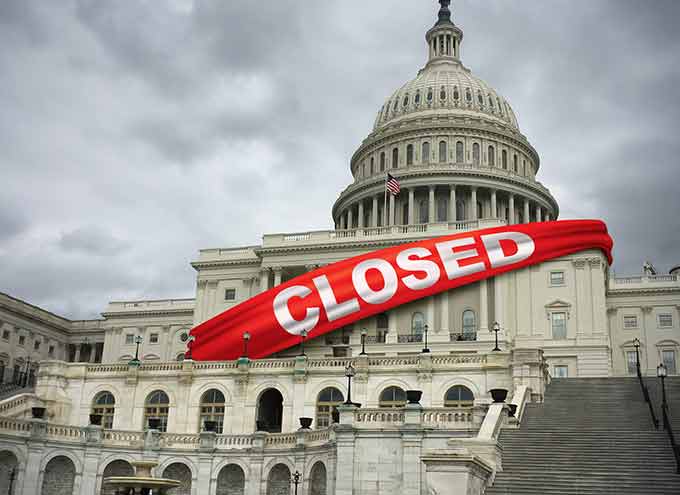Federal Government Shutdown Creates Tax Filing Uncertainty
January 15, 2019

The United States has been under a partial government shutdown since Dec. 22, 2018, and while the House of Representatives is expected to pass bills each day this week to fund closed parts of the government they are unlikely to go through the Senate. President Trump himself has stated he would be willing to keep the shutdown going for “months or years”.
Under the shutdown only about 10,000 of 80,000 employees are deemed essential and are currently working. In addition, the IRS has ceased vital taxpayer services such as answering taxpayer questions and accepting on-disaster relief transcript requests.
It is not known how many services provided by the IRS will not be available during the shutdown. House Ways and Means Committee Chairman Richard Neal has sent letters to the Treasury Secretary, Steve Mnuchin, and IRS commissioner, Chuck Rettig, requesting a full list of services that will be available throughout the shutdown.
Tax Refunds
The IRS has not given refunds during previous shutdowns, however, President Trump has stated refunds will be issued despite the lack of manpower at the IRS. Chuck Rettig has also echoed this sentiment, indicating that the Office of Management and Budget (OMB) has concluded that the IRS can issue requests even when the government is closed. The IRS will send more information about how they plan to issue refunds when they release their updated Lapsed Appropriations Contingency Plan. The IRS has stated this updated plan will be available “in the coming days”.
The IRS has also confirmed that the 2019 individual filing deadline will remain April 15, 2019 for all states, except Maine and Massachusetts. These two states will have until April 17, 2019 to file. They also confirmed that the IRS will accept paper and electronic tax returns starting Jan. 28, 2019.
TCJA
In related news, Ron Wyden, a democrat on the Senate Finance Committee, has asked the IRS not to impose certain underpayment penalties for taxpayers during the 2019 tax filing season since nearly 30 million individual taxpayers could have under-withheld estimated tax payments due to the newly implemented Tax Cuts and Jobs Act (TCJA). The IRS has not stated if they will acquiesce to Wyden’s request.
The enactment of activities related to the TCJA, such as the creation of new instructions, will not be impaired since they are funded by earlier legislation. These activities are important since the 2018 tax season is the first season affected by the TCJA.
Many issues remained unsolved due to both the government shutdown and the implementation of the TCJA in the 2018 tax year. If you have any questions, please contact Dan Murphy, Partner with Aprio’s Tax practice.
Recent Articles
Stay informed with Aprio.
Get industry news and leading insights delivered straight to your inbox.
